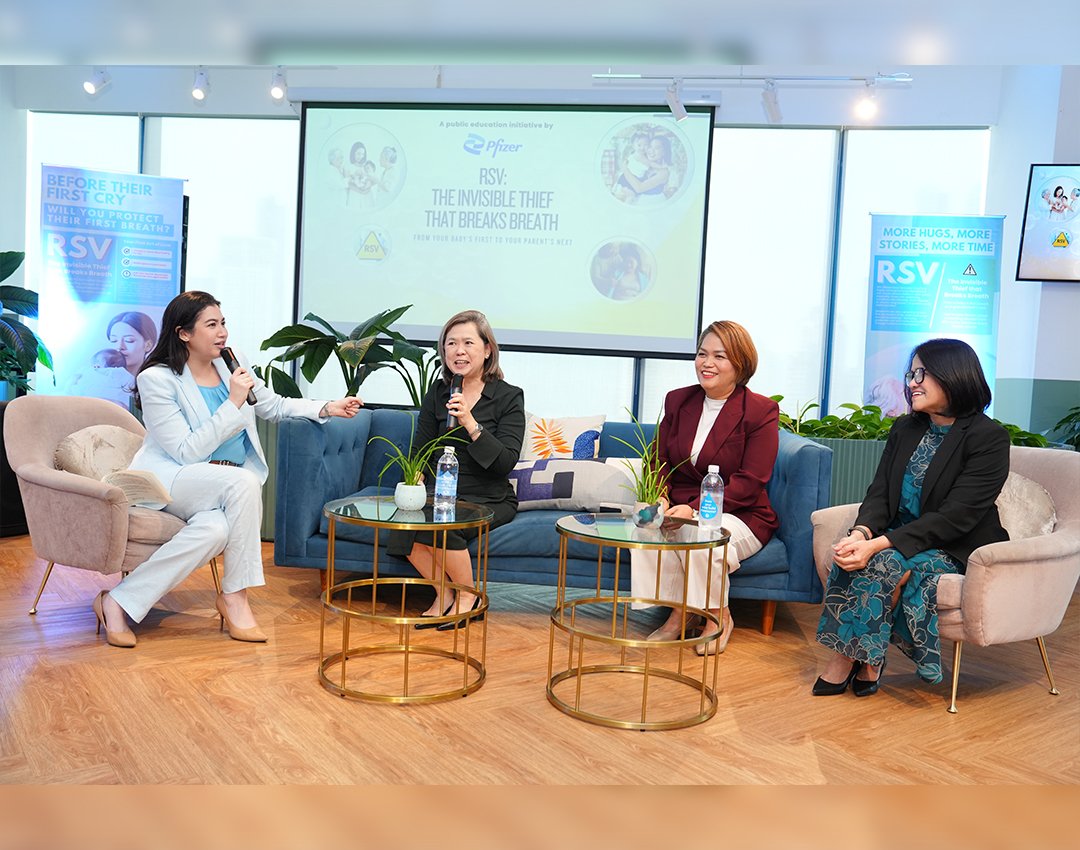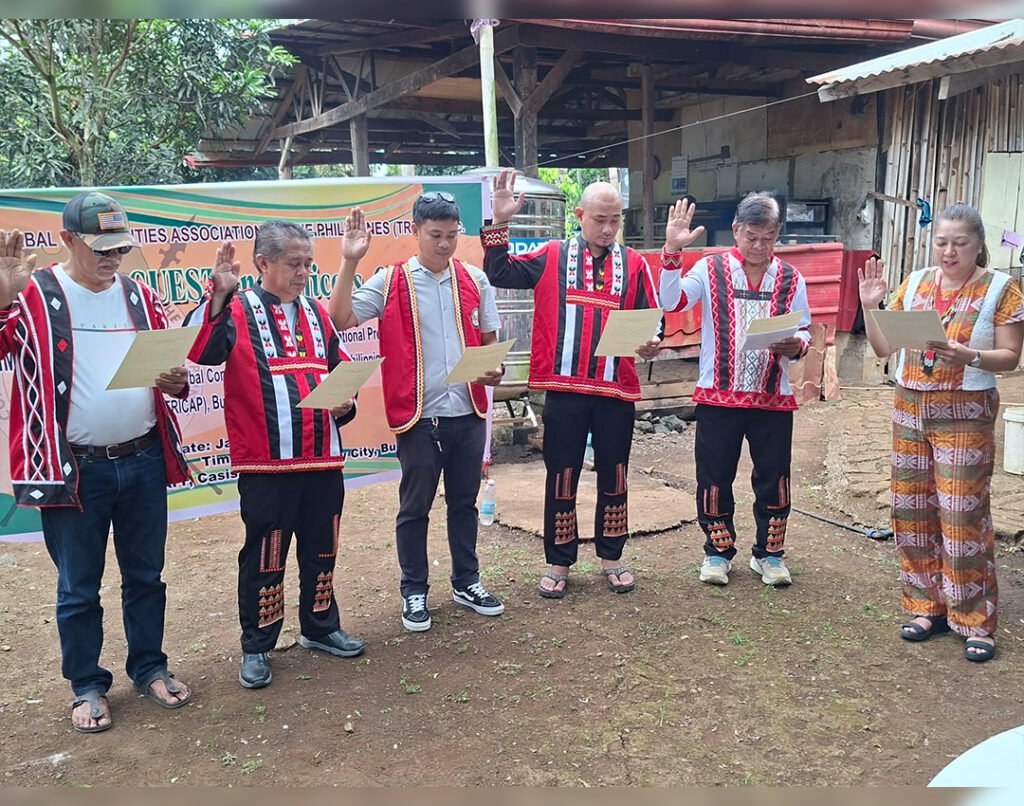RSV highlighted as a serious and immediate threat to infants and older adults, raising the need for awareness. Immunization now offers a vital tool to protect those who are at most risk.
Respiratory Syncytial Virus (RSV) remains to be the leading cause of respiratory illness especially in young children1, prompting experts to raise awareness about the burden of the disease through better surveillance and prevention efforts8.
In a forum initiated by Pfizer dubbed “RSV: The Invisible Thief that Breaks Breath” held at Rockwell, Makati, the discussion highlighted RSV’s understated yet threatening impact on both ends of the age spectrum – infants under six months1 and older adults over 60, particularly those living with chronic medical conditions2-4.
“We are taking this awareness initiative to help provide more information to the public because RSV is a real threat; it’s like a thief that takes away the patient’s ability to breathe. The good news is that it is preventable, so no life should be lost because of RSV. Breathing normally again requires more than just rest, especially when RSV is involved,” said Deborah Seifert, MISP Cluster Lead.
The forum included experts in the medical field including Dr. Analyn Fallarme, OB-IDS, Vice President of the Philippine Infectious Diseases Society for Obstetrics and Gynecology (PIDSOG); Dr. Faith Villanueva, Adult-IDS, Chair of the Philippine Society of Microbiology and Infectious Diseases (PSMID) Vaccination Committee; Dr. Anna Lisa Ong-Lim, UP-PGH College of Medicine Professor of Infectious and Tropical Disease in Pediatrics, delivered the keynote address.
RSV: the thief that breaks breathing
RSV is one of the most common, highly contagious and life-threatening viruses that cause lower respiratory tract infections such as bronchiolitis and pneumonia1,3,7. The virus can be transmitted in several ways: from an infected person through the air or droplets, and by direct contact with an infected person or contaminated surfaces13,16.
A person may become contagious a day or two before showing signs of being sick and are usually contagious for 3 to 8 days. RSV patients with weakened immune systems may remain contagious for at least 4 weeks13. Symptoms are flu-like for upper respiratory illness, which include runny nose, sore throat, headache, fatigue, and fever. For lower respiratory tract infection, symptoms may include cough, bronchospasm, wheezing, fast breathing, and shortness of breath16.
A potential health threat to babies
Across the globe, RSV is responsible for 33 million infections and 3.6 million hospitalizations in children under five6. Nearly 40% of these hospitalizations occur in infants under six months each year, many of whom are too young for routine vaccinations6,9.
In the Philippines, a 9-year case series study involving hospitalized severe pneumonia patients aged 5 years old and below showed 27.0% of the viruses detected were RSV14.
In its own research conducted from May 2022 to April 2024, the Research Institute for Tropical Medicine (RITM) indicated that RSV in the Philippines is the most prevalent from May to December although transmission of the virus was present year-round8. Positivity rate of RSV in the country is 20% based on data from the RSV Surveillance Pilot Project conducted from January 1, 2024 to May 31, 2025, reaching as high as 66.7% during peak season8.
PIDSOG affirms that RSV is one of the most detected respiratory viruses in the Philippines each year, and is the leading cause of hospitalization among infants and young children5.
A pregnant mother’s way of protecting baby from the womb
Early and comprehensive protection from pregnancy to the postnatal period is crucial through regular health monitoring, respiratory care, proper hygiene, and adherence to medical guidance. It is critical to protect an infant’s health during their first days after birth because it is during this stage when an infant’s immune system is still immature17,19. It not only reduces the risk of severe complications and mortality but also helps build long-term respiratory health in young children. Protection from infectious diseases mainly depends on maternal antibodies transferred to the baby18.
Pregnant women can protect their unborn child from RSV through maternal immunization1. RSV vaccines administered during pregnancy pass protective antibodies to the baby via the placenta, forming a natural defense during the baby’s first vulnerable months of life10.
POGS, along with PIDSOG, advocate maternal immunization, concurring with the World Health Organization’s previously issued position paper on immunization for the protection of infants against RSV1. The Centers for Disease Control and Prevention (CDC) likewise recommends maternal immunization for flu and Tdap19.
PIDSOG recommends a single dose of RSV vaccine for pregnant women from 28 weeks of gestation onwards except during active labor. The organization adds that maternal vaccination should ideally happen two weeks before delivery, although the group does not currently recommend repeat vaccination in succeeding pregnancies5.
“RSV is a menace that continues to evolve, that’s why it is crucial for everyone to keep ourselves aware and informed. Pregnant women need to know that they can now protect their babies before they are even born through maternal immunization,” said Dr. Fallarme.
Reducing health risk for older adults and vulnerable populations
The burden of RSV on older adults over 60 years, including those with underlying medical conditions, is just as serious as the threat on infants3,13. There is increased risk of severe RSV illness for older adults who have underlying chronic medical conditions like asthma, COPD, cardiovascular disease, diabetes, neuropathy, congenital heart disease, and other comorbid illnesses3,12,20, 21.
RSV symptoms in older adults often mimic flu or asthma, fatigue, wheezing, or low-grade fever, making early diagnosis difficult7,11,12. Left untreated, RSV can exacerbate heart failure or chronic obstructive pulmonary disease (COPD), leading to hospitalization or even death11,12.
As of April 2025, the CDC Advisory Committee on Immunization Practices (ACIP) has approved recommendations for a single-dose RSV vaccination for adults 50-59 years old who are at risk of severe RSV illness15.
There is no specific treatment for RSV infection22, but it can be diagnosed through polymerase chain reaction (PCR) and antigen testing23,24. While vaccines are now available for prevention of RSV25, the public is advised to consult their physicians. For more information and updates about RSV and its prevention, visit the website BeRSVAware.ph.
 215
215




